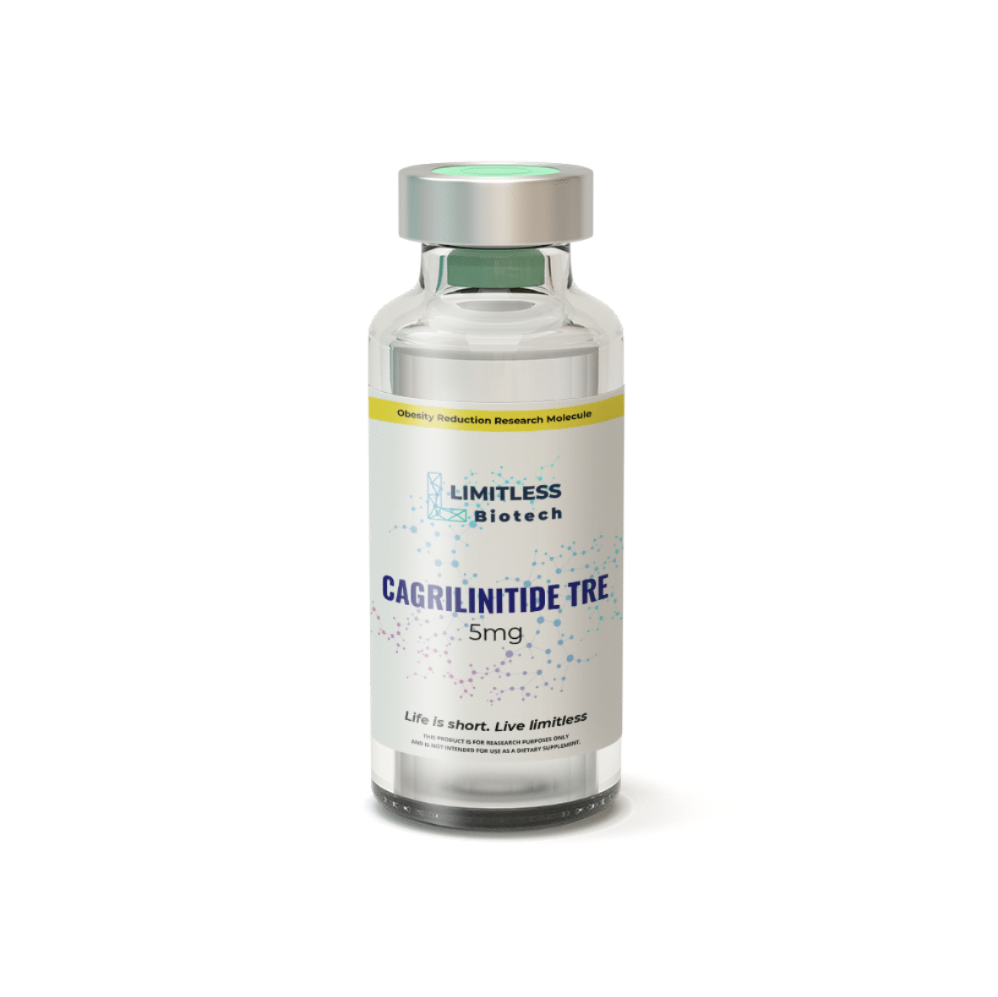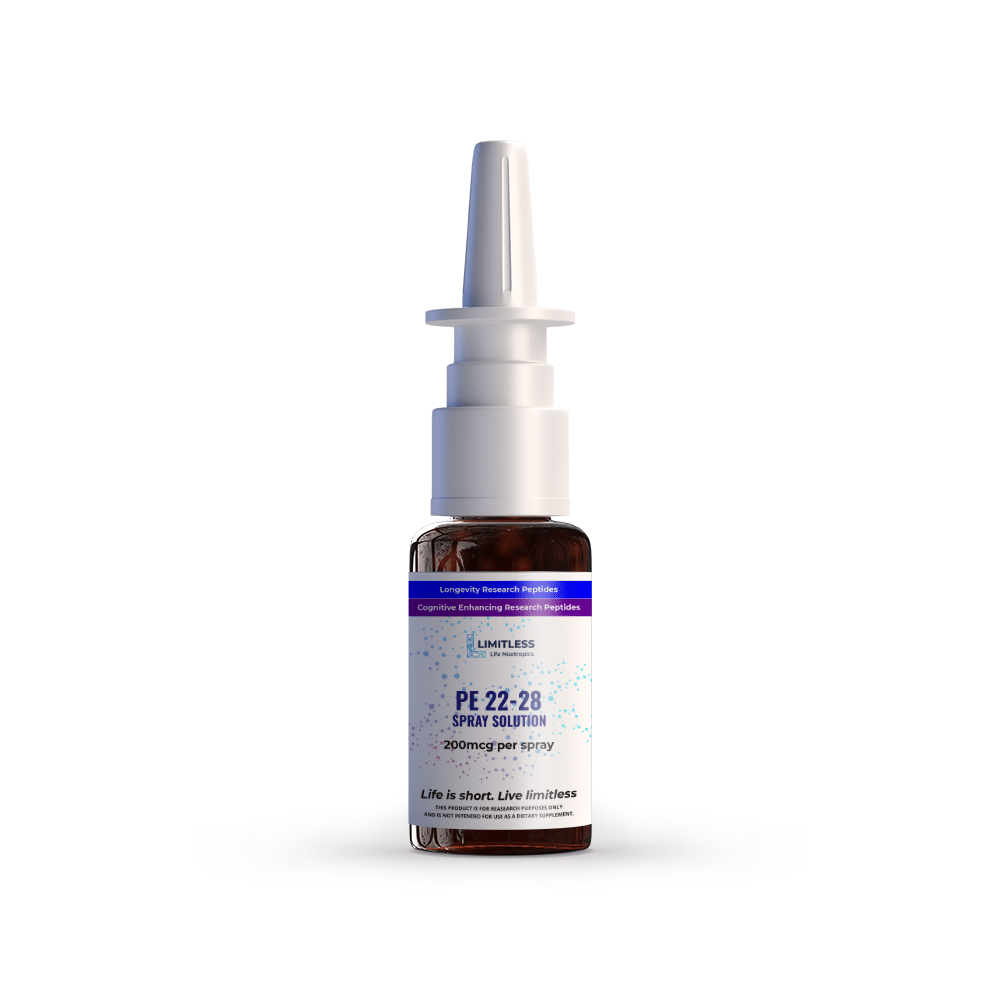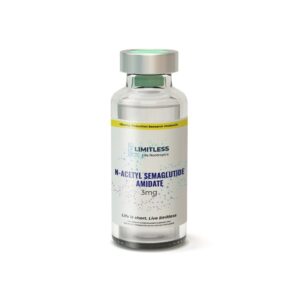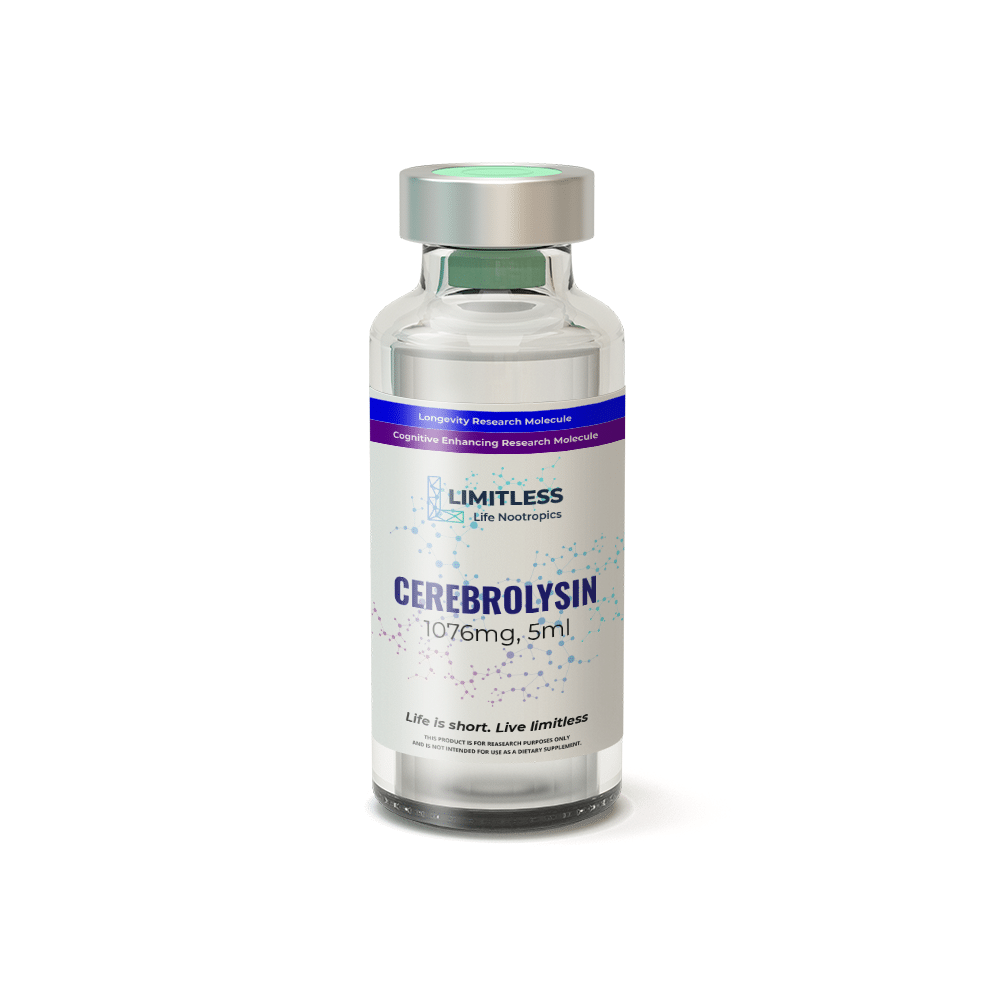Description
Cagrilintide is a long-acting acylated amylin analog developed for research focused on metabolic disorders such as obesity and type 2 diabetes. This synthetic peptide is designed to mimic the natural hormone amylin, but with enhanced stability and extended activity. It acts as a non-selective agonist at amylin and calcitonin receptors, with modifications including N-terminal lipidation and targeted amino acid substitutions (N14E, V17R, and P37Y), all of which improve its pharmacological profile.
Cagrilintide is structurally related to pramlintide but exhibits superior resistance to degradation and a longer half-life, making it an effective candidate for once-weekly dosing in clinical research applications.
Benefits of Cagrilintide peptide
In clinical studies, Cagrilintide has demonstrated significant effects on appetite regulation, body weight reduction, and glucose metabolism. Its benefits include:
-
reduced food intake and increased satiety through central amylin receptor activation
-
robust weight loss when administered as monotherapy or in combination with GLP-1 agonists
-
improved glycemic control in patients with type 2 diabetes
-
favorable safety and tolerability in long-term studies
-
potential synergy in combination with semaglutide (as in the investigational CagriSema therapy)
Cagrilintide may represent a new class of peptides for addressing metabolic diseases through dual-action appetite and glucose regulation.
Cagrilintide dosage and administration
Cagrilintide is typically administered via subcutaneous injection and is under evaluation for once-weekly dosing in human trials. In research settings, doses have ranged from 0.3 mg to 4.5 mg weekly, depending on the study design and whether Cagrilintide is used alone or in combination with other peptides such as semaglutide.
Its lipidated structure allows for sustained receptor activation and prolonged biological activity, minimizing the need for frequent administration and improving compliance in long-term research models. All administration should follow appropriate sterile handling protocols.
Indications and research applications
Cagrilintide has been studied across various domains of metabolic and endocrine research. Its primary research applications include:
-
weight loss and obesity management
-
type 2 diabetes and glycemic regulation
-
appetite modulation and satiety control
-
cardiovascular risk reduction associated with metabolic syndrome
The peptide’s dual receptor activity makes it especially promising in combination therapies, particularly when paired with incretin-based agents like semaglutide for enhanced clinical outcomes.
Cagrilintide side effects and tolerability
Clinical trials report that Cagrilintide is generally well tolerated, with gastrointestinal symptoms such as nausea and constipation being the most common adverse effects, especially during dose escalation. These side effects are consistent with other appetite-modulating peptides and often diminish over time.
No severe adverse effects have been confirmed in the available data. Long-term safety and efficacy continue to be assessed in phase 3 trials, particularly for the CagriSema combination.
Buy Cagrilintide at DN Research
For researchers exploring cutting-edge peptide therapeutics for obesity, glucose dysregulation, and metabolic health, Cagrilintide offers a highly promising platform. Visit DN Research to secure high-purity Cagrilintide for your research needs, available for laboratory use and scientific investigation.
Legal disclaimer
This product is sold as a pure compound for research purposes only and is not meant for use as a dietary supplement. Please refer to our terms and conditions prior to purchase.
Safety information: Keep this product out of the reach of children. This material has limited research available and may result in adverse effects if improperly handled or consumed. This product is not a dietary supplement, but a pure substance, sold as a raw material. We attest exclusively to the quality, purity, and description of the materials we provide. This product is for use and handling only by persons with the knowledge and equipment to safely manage this material. You agree to indemnify DN Research for any adverse effects that may result from improper handling and/or use.
The articles and information on products that may be found on this website are provided exclusively for educational and research purposes. These items are not pharmaceuticals or medications, and the Food and Drug Administration has not approved them for the treatment or prevention of any disease or medical condition.




